Month: July 2015
-
Houghton Mifflin Harcourt Invests Over $1 Million to Enable Summer Learning Throughout the Greater Boston Community
BOSTON, MA — Global learning company Houghton Mifflin Harcourt (HMH) continues to demonstrate its commitment to inspiring passionate, curious learners in its HQ city of Boston by investing over $1 million in …
-
Racebending and 'Harry Potter' Fandom
The beauty of racebent fanart is that it has nothing to do with the author’s intentions, the canon, or other people’s opinions — it has only to do with imagination, …
-
Try to Always: White Privilege and Interrupting Racism
Contributed to CBC Diversity by Karen Boss
Over the years at my varied jobs (in higher education, the scuba-diving industry, nonprofits, and now publishing) in many locations (Maryland, Los Angeles, Thailand, Colorado, Pennsylvania, and Boston), I have often discussed race and diversity with others. From first widespread American use of the word “multiculturalism” while I was in college in the early 90s, to the annual three-day diversity training for student leaders at Occidental College, to working with Burmese folks who went to Thailand for protection, I’ve been concerned about race, diversity, and people’s experiences in the United States and beyond for a long time.

Working in publishing—especially children’s publishing—for me has meant being able to continue to engage around diversity issues. And I’m lucky to be at Charlesbridge, a house with a track record of publishing books featuring characters of color and diverse cultural viewpoints.
Recently I was reminded of an experience I had more than a decade ago, when I attended the Social Justice Training Institute (SJTI). This three-day intensive is for campus professionals and engages diverse groups of about twenty in an immersion experience centered on race, culture, and social justice. The discussion one morning was focused on interrupting racism when one sees, hears, or happens upon it. At one point, I (a white person) said that I would commit to always trying to interrupt racism. The reaction in the room was palpable. I knew I’d made a misstep, but I didn’t know what I’d said wrong. I waited.
Someone said that my trying was nice, but he needed me to always interrupt racism. He said that every day he gets up and makes his way through the world as a person of color, but that in my phrasing, I had made it clear that I have a choice. I could choose to interrupt racism if it were convenient for me, or I could carry on if it weren’t.
A lot of heads nodded around the room. Murmurs began.
Yes, someone else continued, trying isn’t enough. We need white people to call out other white people on their racist remarks, comments, or missteps. You can’t just try. You have to do it—every time.
As the murmurs got louder and the tension in the room grew, I started to speak. Tears began, and then I was full-on crying as I responded to the group.
I will try, I said. I don’t want to lie in this room, and I know that I can’t—won’t, if I’m being honest—always interrupt racism. Sometimes the situation feels risky, I said, or sometimes the offender might be a family member with whom I can’t fight, I explained.
As I made my excuses, I cried more.
I will try to try harder, I said. I will try to always do it. Try to always. But I can’t promise you. I wish I could. I’m sorry. I’m being honest, I said.
Finally I stopped. I couldn’t believe the privilege inherent in my words. What was I saying to this group of people that I was letting down? The session finished soon after that. As we gathered our things (and I gathered myself together), a few people approached me.
Thank you, they said. Thank you for being honest. I was surprised. I didn’t deserve thanks. I had disappointed the room, the Institute leaders, myself. I knew trying wasn’t enough.
More people approached to tell me my honesty and owning my struggle and privilege was appreciated. Some reiterated the notion that I must try harder. I agreed I would.
I’m protected by the system in the United States—a system based on white privilege—every day. Sometimes it blinds me: recently I missed something in a manuscript that might’ve offended people had it not been pointed out by someone else, which horrified me. Sometimes I default to caring for the offender, which after the fact makes me angry: when a family member asked if we would ever change the race of a person of color in a nonfiction book “for marketing reasons,” I spoke up, but much more gently than he deserved. In my thoughts or actions, I recognize my own white fragility, which our system supports. (If the term “white fragility” is new to you, read this article first. For more in-depth information, this paper is fantastic.) But I still fail myself, and I fail others. I still struggle with the always.

Racism isn’t an issue that can or should be left to people of color to solve. I’ve always believed that ending racism has to involve white people. In that room at SJTI, I was reminded that as a white person, I get airtime, face-time, discussion time with other white people that most people of color don’t. (A lot of people subscribe to this notion. Read this recent speech given by John Metta to a white audience in Washington State.)
As a publishing professional, in a field that is far less diverse than it should be (see this article about Lee & Low’s recent efforts to collect data regarding publishing-employee demographics), it is even more important that white people be part of the solution. I believe that it’s important to check my own white fragility and remind myself and others that we don’t, as many wish to believe, live in a “post-racial society.” It’s my obligation to not rest on the laurels of privilege I didn’t earn and don’t deserve. Now it’s also my obligation as an editor to do whatever I can to interrupt privilege and question my assumptions when evaluating manuscripts and making books.
This issue is complicated. For me, it’s a lifelong exploration. Figuring out how to figure out what I don’t know is always my first step, especially as an editor. Because making diverse books is all fine and good, but if they aren’t authentically diverse or if they do a cultural disservice, then in my mind, they’re potentially worse than if they didn’t exist at all. And even in this last paragraph lies privilege, because I have the freedom for my journey through these issues to meander and take as long as it takes. But people of color need action now. And since always is better, that’s what I’ll keep striving for.

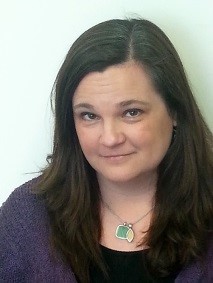
Karen Boss is a full-time assistant editor at Charlesbridge and works part-time in development at Hyde Square Task Force, a nonprofit in Jamaica Plain in Boston. She holds an MA in Children’s Literature from Simmons College. She first discovered Janet Hel ms’s White Racial Identity Development model in 1994, which was a game-changing moment in her life. She’s been thinking about social justice for more than twenty years through a degree in sociology, a master’s in higher education administration and student development, and ten years of work in the nonprofit sector
-
How Reading Can Improve Health
Reading offers numerous psychological benefits, from relieving anxiety and depression to staving off dementia. Frequent readers also reap social rewards, demonstrating a greater capacity for empathy, tolerance, and awareness of different cultures. For …
-
Mailman Takes Action to Bring Books to a Young Boy
Upon hearing this story, the mail carrier took action; he posted a photo of Mathew on Facebook, asking friends to donate books. Lynch’s social media message went viral and Mathew received packages of …
-
The Rise in Children's Nonfiction
The trend reflects the Common Core State Standards’ emphasis on nonfiction, as well as the emergence of guidebooks and spinoffs for popular games such as Minecraft. Bookstores have responded to …
-
'Reading Rainbow' is Coming to Netflix!
Last summer, Burton and his team raised over $5.4 million on Kickstarter to launch a Reading Rainbow digital library. The upcoming move to Netflix will bring the show to a …
-
Raina Telgemeier Reveals Title of New Graphic Novel
Eleven-year-old Catrina and her family are moving to the small coastal town of Bahía de la Luna because her younger sister, Maya, is sick. Cat isn’t happy about leaving her …
-
The Benefits of Bedtime Reading
Over time, the nightly act of reading conditions children to associate bedtime stories with relaxation and sleep. For adults who have difficulty sleeping, the key to a good night’s sleep …
-
Algonquin Young Readers Acquires Andrew McCarthy's Debut Novel
New York, NY – Algonquin Young Readers, an imprint of Workman Publishing, is excited to announce that it has acquired North American rights to publish Andrew McCarthy’s debut novel. Titled …
-
7 Books About Growing Up Asian-American I Wish I'd Had As a Kid
I often have iterations of this conversation with my publishing colleagues, especially now that diverse books are becoming more visible (and hopefully will continue to be so). Reflections of my Asian-American experience were not common in the 90s and early 00’s when I was still in school; when I come across stories now, I think wistfully, “I wish I read this back when I was a kid!”
So I present you a completely personal, completely not comprehensive list of 7 middle grade and young adult books featuring contemporary Asian-American characters. While my heritage is Chinese, the characters here include Taiwanese-American, Korean-American, Indian-American and more—and I found plenty to identify with. The only other thing they have in common is the fact that even if they were published when I was the “right age,” I came to all of these as an adult.
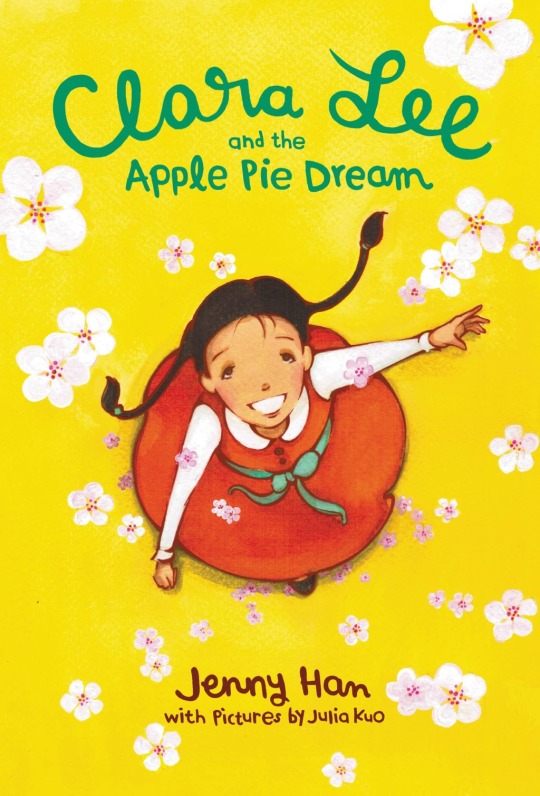
Clara Lee and the Apple Pie Dream by Jenny Han, illus. by Julia Kuo (2011, Little, Brown Books for Young Readers)
A sweet, adorable chapter book featuring Korean-American third-grader Clara Lee who likes Good Luck, candy necklaces, her hometown of Bramley, and wants to enter the town’s Little Mist Apple Pie contest. It also a powerful passage on on what “American-as-apple-pie” means, especially when another girl comments that Clara Lee “doesn’t look American”.
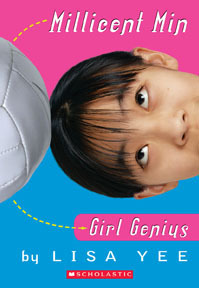
Milicent Min, Girl Genius by Lisa Yee (2003, Scholastic)
It’s hard to compile a list like this without mentioning Lisa Yee. Witty, sarcastic 11-year-old Millicent Min has her identity all wrapped in intelligence, awards and academic success. She has few friends, as her peers resent her for being a high school junior. While many academically-driven Asian-Americans can identify with Millicent, even more will share her struggles to embrace her uniqueness, make friends and connect with others.
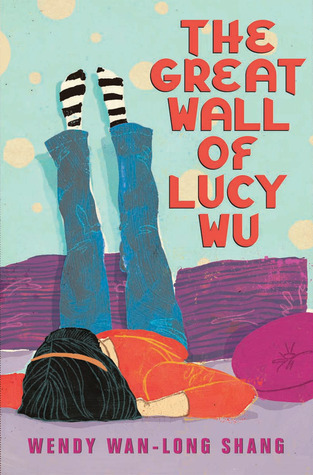
The Great Wall of Lucy Wu by Wendy Wan-Long Shang (2011, Scholastic Press)
A very kid-friendly middle grade book that explores Chinese-American identity through the eyes of sixth-grader Lucy. Lucy’s sister Regina is the perfect ‘culturally aware’ Chinese-American, but Shang enjoys subverting stereotypes with Lucy, who prefers to play basketball instead of going to Chinese school. Also, a wonderful exploration of intergenerational dynamics when Lucy ends up sharing a room with her great-aunt from China.
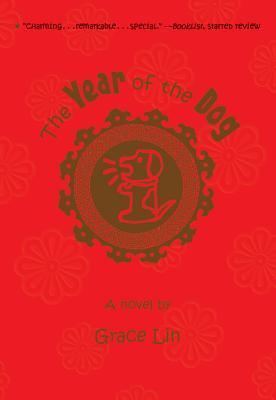
The Year of the Dog by Grace Lin (2007, Little, Brown Books for Young Readers)
A semi-autobiographical middle grade novel by Grace Lin detailing the life of her younger self, Pacy. Her observations range from there not being any Chinese munchkins in the Wizard of Oz to her parents’ inability to put up Christmas decorations, but also just every day <i>stuff</i>–friends, school, drawing, Halloween. Lin has written two more Pacy books, The Year of the Rat and Dumpling Days.
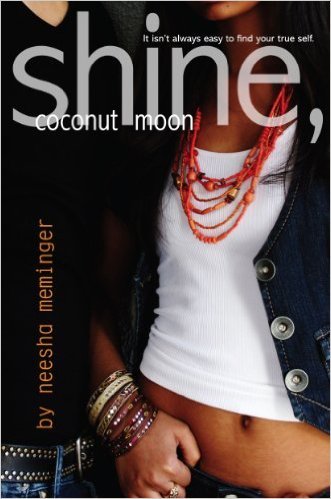
Shine, Coconut Moon by Neesha Meminger (2009, Margaret K. McElderry Books)
A thoughtful YA novel about a teenage Sam struggling with her Sikh identity in post-9/11 New Jersey. Sam’s mother rejected her Sikh culture, and as a result, Sam grew up a “coconut"—brown on the outside, white on the inside. Meminger really explores the difficulties of navigating native and acquired cultures, both internally with Sam and externally when her Sikh uncle Sandeep shows up on her family’s doorstep.
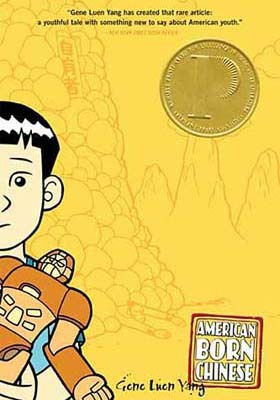
American Born Chinese by Gene Luen Yang (2006, First Second)
There aren’t enough superlatives to describe this Printz-winning YA graphic novel/memoir by Gene Luen Yang, who seamlessly weaves three seemingly unrelated storylines (an American-born Chinese boy who is the only Asian in his new school, the myth of "The Monkey King”, and the story of Chin-Kee, the Chinese stereotype who makes his white cousin’s life a living hell) in this tale of identity, friendship and coming-of-age.
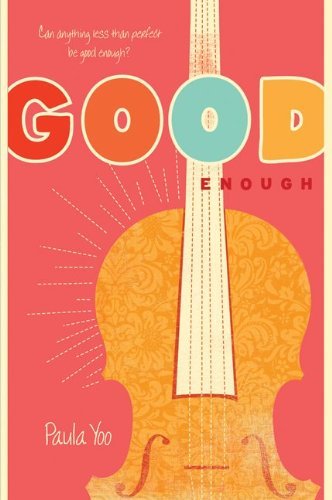
Good Enough by Paula Yoo (2008, HarperTeen)
It’s impossible for me to judge this book objectively, because I basically lived it. Patti is a first-generation Korean-American, and her only motivation for getting through high school is that she will one day graduate from a prestigious university and become a doctor or lawyer. Chronicling her senior year and sprinkled with witty SAT tips, Korean spam/kimchi recipes and college application quesitons, Good Enough’s best moments are Patti’s interactions with her parents.
I know there are other books that I’ve inevitably left off this short, limited list. Please share your favorites!
-
New Nonfiction Classroom Skill Books and Magazine from Scholastic Bring Writing, Science and Geography to Life
New York, NY – Scholastic today announced new skill books and a new magazine designed to expose students to compelling, complex nonfiction texts and help them build skills in writing, …
-
JetBlue and Random House Children's Books Partner for the Soar With Reading Program
It is our hope that providing free access to books in a fun and convenient way will encourage reading. Additionally, in support of the vending machine program, the community will …
-
Jennifer M. Brown Named Vice President, Publisher, Knopf Books for Young Readers at Random House Children’s Books
New York, NY (July 23, 2015) — Jennifer M. Brown, a 25-year veteran of the children’s book industry, will join Random House Children’s Books as Vice President, Publisher, Alfred A. …
-
Danny and the Bears in Germany
Okay, so this might be a horrible thing to say given that I’m an editor, but I don’t think I’ve read a book that changed my life. Gasp! I know. When I’m editing, I always cross my fingers and hope that it will change someone’s life—and maybe, one day, I’ll read one that does just that.
But when I think back to my childhood, especially the time between the ages of five and eight when I lived in Germany, I remember how important books were for me. Before I turned five years old, my father enlisted in the Army. We lived in a pretty bad area in Brooklyn, and my parents were dreading my first day of school. And rightfully so, because I really think I would’ve been eaten alive at my neighborhood public school…especially since I was already doing a very bad job of defending myself on the playground. Since they didn’t have the money to move or to send me to private school, my dad joined up and we were off to Germany. Germany of all places! Probably an extreme measure to some, but thinking back on it, I appreciate the gesture.
I don’t remember too much about Germany. Four things stand out to me:
- chocolate
- croissants
- an adorable blond boy I had a crush on
- books
Definitely books!
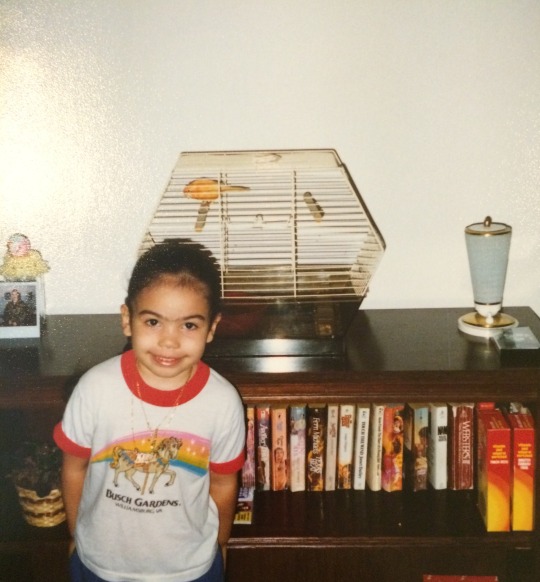
You see, we only had three English channels on TV, and my mom refused to let me out to play with the other kids. I ruined my chances of seeming tough back in New York City. But this is when I started to read the most, and anything I could get my hands on. Seriously. I grabbed my mom’s bodice-ripping historical romances from the shelf first, which were then promptly moved out of sight and out of reach.
Here’s a photo of me in front of those “off limits” book. Don’t I look like I’m plotting something?
Moving on! The first books I remember loving were the Berenstain Bears series by Stan and Jan Berenstain. I wanted to live in that tree house and sew quilts so badly. Although their lives were nothing like my own, in New York City or Germany, I learned important lessons about being kind, how to deal with bullies, and other useful tidbits I needed at the time.
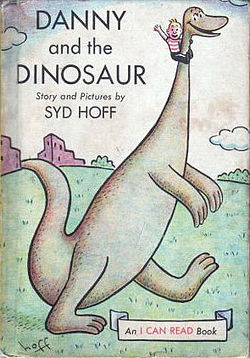
Danny and the Dinosaur by Syd Hoff was on repeat at my home when another momentous occasion happened in my life: the arrival of my baby sister. I was so happy not to feel alone in Germany anymore. Little did I know that she was going to be sleeping and drooling most of the time, which made her a pretty lousy play mate. So it was back to books for me, and I read Danny and the Dinosaur to anyone who would listen.
Somehow I even convinced the doctors and nurses who were taking care of my mom and sister to take a break from all the life saving and baby delivering and let me read to them the adventures that Danny and his Dinosaur went on.
I’m not sure if these books changed my life, but they definitely kept me company at a time when my life was going through a lot of change—a new home in a foreign country, a baby sister, and the feeling of being miles away from family and friends. Because of that, they’re what I remember most whenever I reminisce about those days.
-
Judy Blume Offers Advice to Parents
When I grew up kids were all reading adult fiction and my parents were just glad that I was reading. Now there’s all this young adult literature and I say …
-
Author and Editor Andrea Davis Pinkney on Championing Diversity
Pinkney recently attended the Texas Library Association’s Children’s Book Diversity summit, where she was encouraged by signs of a unified effort on the diversity front. Going forward, she hopes to see publishers, librarians, and …
-
HelloFlo.com Founder Naama Bloom to Publish Puberty Guide With Penguin Young Readers
New York, NY – Naama Bloom, founder and CEO of the popular online site HelloFlo.com, will publish There Will Be Blood: The HelloFlo Guide to Puberty with Dutton Children’s Books, an …
-
Authors and Illustrators Reveal the Origins and Pronunciations of Their Names
MADISON, WI – Ever wondered how to pronounce a favorite author’s name? Since 2007, almost half-a-million readers have visited www.TeachingBooks.net/Hello to hear authors and illustrators say their names and recount brief …
-
The Troubling State of School Libraries
There are currently no federal programs for school library funding, and individual states have failed to take up the initiative. A recent piece of legislation aimed at reauthorizing the Elementary and Secondary Education Act/No …




















